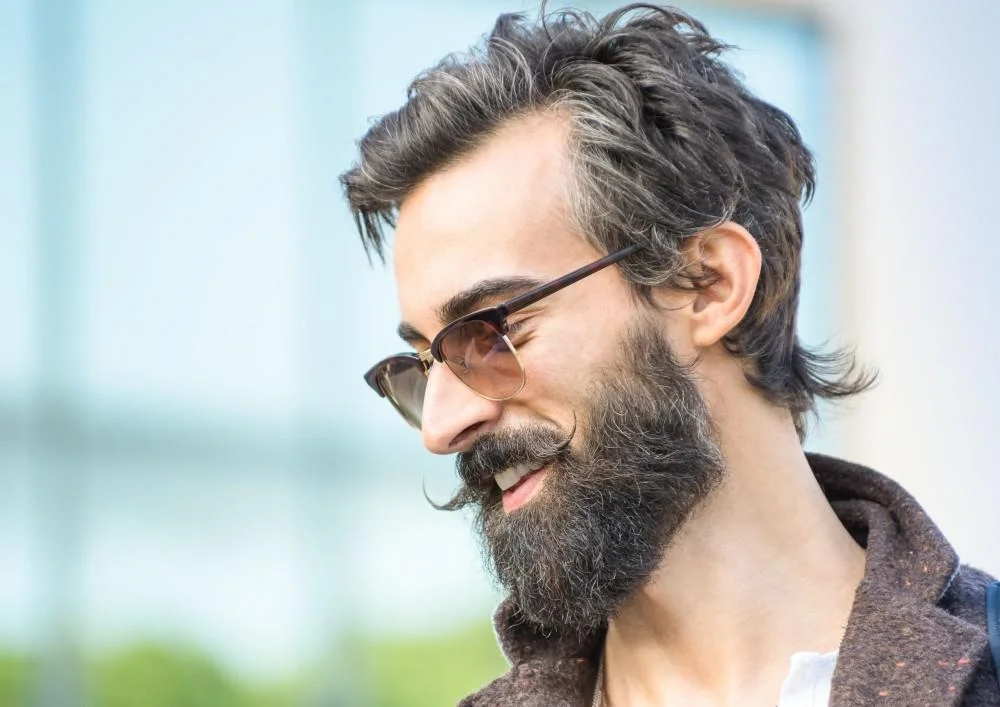You probably know that the sun’s comforting warmth is dangerous to unprotected skin. Exposure to ultraviolet (UV) light in the sun’s rays increases your risk for skin cancer. But those UVA and UVB rays can also damage your eyes.
If you’re sensitive to light, you may already wear sunglasses when outdoors. However, the wrong type of sunglasses can do more harm than good. If you’re not sensitive to light, you might skip the sunglasses altogether. But making that choice endangers your eye health and your vision.
Expert ophthalmologist John Ghobrial, MD, advises patients of all ages to wear sunglasses when outdoors — even on cloudy days. At Eye Associates of Monmouth in Colts Neck, New Jersey, our entire team is dedicated to preserving your vision for life, and that includes encouraging the use of the right kind of sunglasses.
Do you really need to wear sunglasses? The following questions provide the answer.
Do you want to reduce the risk of cataracts?
Cataracts are an age-related condition in which the lenses inside your eye become so cloudy that you can’t see clearly anymore. Cataracts are one of the leading causes of blindness in the United States. By age 80, about 70% of Caucasians, 53% of African Americans, and 61% of Hispanic Americans have cataracts.
Exposure to UVA and UVB rays accelerates the development of cataracts. You can reduce cataract formation by about 5% just by wearing sunglasses. Cataracts can’t be treated or cleared once they develop. The cloudy lenses must be replaced surgically with artificial lenses.
Do you want to reduce the risk of macular degeneration?
Macular degeneration is another age-related eye disease that is among the leading causes of blindness. When the part of your retina called the macula becomes damaged, it causes blind spots or distortions in your vision. Macular degeneration is the leading cause of vision loss in women and men over age 50 in the United States.
Exposure to the sun’s rays increases your risk for macular degeneration by almost threefold. There’s no cure for macular degeneration. Some treatments can slow its progression, but they can’t reverse the damage already done.
Do you want to protect your vision?
Sunglasses are one of the easiest and least expensive ways to protect your vision. In addition to reducing the risk for cataracts and glaucoma, sunglasses reduce your risk for eye cancer. They also prevent a type of sunburn on the eye called photokeratitis that can cause temporary blindness.
How to choose and wear sunglasses
When you decide that you’re committed to your eye health and lifelong vision, you must choose the right type of sunglasses and wear them correctly, too. Lenses that are too small won’t protect your eyes, so choose glasses with lenses that cover your entire eye socket.
If the lenses aren’t coated with special filters that block UVA and UVB rays, you could actually do more damage with sunglasses. When trying to look through dark glass, your pupils open up to let in more light. Without protective coatings, that means more UVA and UVB rays get through to damage your eyes.
Check the labels on new sunglasses you buy to be sure they protect against UVA and UVB rays. Avoid vintage sunglasses, which may not have protective coatings and could damage your eyes. For vision protection, sunglasses should be:
- As large or larger than your entire eye socket
- 99%-100% protective against UVA and UVB ray wavelengths of up to 400nm
- Worn pushed back on your nose bridge, and touching your face
Ideally, choose wrap-around sunglasses that block light from the sides. The proper sized lenses not only protect your vision, but also minimize damage and reduce the risk for skin cancer on the very thin skin around your eyes.
And protecting your children’s eyes is just as important as protecting your own.
Coated contacts aren’t enough
While a UV-protective coating on your contact lenses helps cut down UVA and UVB rays, they aren’t sufficient for outdoors. Be sure to use 100% UVA and UVB blocking sunglasses, even when you’re wearing those contact lenses.
In addition to wearing sunglasses outdoors, annual eye exams ensure your eye health, too. Call for an appointment today by contacting our friendly team at Eye Associates of Monmouth today.


